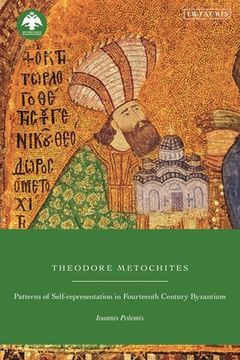Share
Theodore Metochites: Patterns of Self-Representation in Fourteenth-Century Byzantium
Ioannis Polemis
(Author)
·
I. B. Tauris & Company
· Hardcover
Theodore Metochites: Patterns of Self-Representation in Fourteenth-Century Byzantium - Polemis, Ioannis ; Stathakopoulos, Dionysios
Choose the list to add your product or create one New List
✓ Product added successfully to the Wishlist.
Go to My Wishlists
Origin: U.S.A.
(Import costs included in the price)
It will be shipped from our warehouse between
Friday, May 31 and
Tuesday, June 18.
You will receive it anywhere in United Kingdom between 1 and 3 business days after shipment.
Synopsis "Theodore Metochites: Patterns of Self-Representation in Fourteenth-Century Byzantium"
The statesman and scholar Theodore Metochites was one of the most important personalities of the fourteenth-century Byzantine Empire. A close advisor to the emperor Andronikos II and restorer of the famous monastery of Chora in Constantinople, Metochites left various writings including orations, poems, essays and commentaries on classical and religious texts, in which he discusses the numerous problems that troubled him and his contemporaries, such as the decline of the state and the tension between public life and that of the philosopher. In this book, Ioannis Polemis provides the first in-depth study of Metochites' oeuvre, revealing the complex way he represented the authorial self to critique the politics and mores of his day, whilst at the same time shielding himself from potential criticism. Polemis details the way Metochites deftly manipulated figures and tropes from classical antiquity and early Christianity to justify his role in public life, which was traditionally shunned by scholars in the pursuit of 'logos'. The book provides unique insights into one of the late Empire's most important figures, as well as more widely deepening our understanding of classical reception in Byzantium and the social, political and intellectual climate of Constantinople in the fourteenth century.
- 0% (0)
- 0% (0)
- 0% (0)
- 0% (0)
- 0% (0)
All books in our catalog are Original.
The book is written in English.
The binding of this edition is Hardcover.
✓ Producto agregado correctamente al carro, Ir a Pagar.

